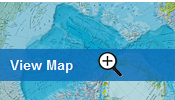Canada’s polar regions are under siege. Temperatures are warming more rapidly than elsewhere on Earth and model projections see this trend persisting well into the future. Ecosystems are being degraded and permafrost is melting. The effects of climate change and other global environmental phenomena, such as toxic containments, are drivers that challenge the integrity of the landscape and as a result impact the diet and health of northerners.
Sea-ice and glaciers are melting at an alarming rate and are accelerating the warming of the planet and the rise of global sea-levels. Vast reservoirs of frozen carbon locked in the seabed and peatlands are beginning to seep into the atmosphere augmenting the greenhouse effect. Gaseous contaminants emanating from human activities outside the Arctic accumulate resulting in an increase in the ozone hole over the Arctic, which admits harmful ultra-violet radiation to the tundra surface. North flowing rivers serve as conduits for waste that accumulate in the Arctic Ocean and marine food-webs.
The historical quest for trading routes through a frozen North-West Passage led to the subsequent European exploration and development of the land we now call Canada. Soon, the commercial movement of marine traffic through the Arctic Ocean will become a reality. This will provide ready access to northern resources from around the world. Issues of Canadian sovereignty over resources in the ocean and its seabed are contentious and in many cases legislation pertaining to the monitoring and use of international waters is lacking. The push to extract riches from the land will bring with it new challenges in the form of new economies, altered lifestyles, increased contamination, new diseases, and military surveillance, which will force us to re-orient our thinking, and modes of communication and transportation to north-south from the traditional east-west.
The Inuit and Northern First Nations have long served as stewards of this land and have developed a remarkable culture incorporating their surroundings into distinctive customs, language, clothing, diet, recreation, music, art and design. Can this culture survive and flourish in the face of powerful forces driving northern development? Northern residents are only now regaining some control over their land and institutions and developing a voice in how the future will unfold. Are we listening to those voices?
These issues form the basis for research by faculty members at York University and their graduate students. These issues are also reflected in undergraduate and graduate courses being taught across several faculties. We invite you to explore this site to learn about our northern interests, scholarship and activities.


